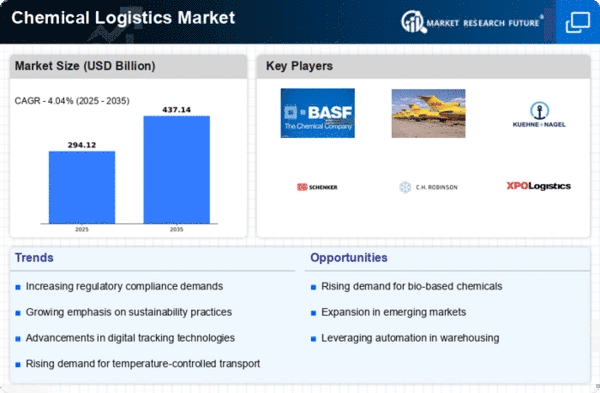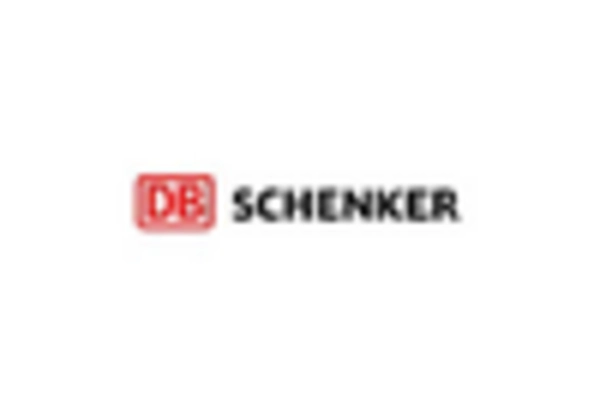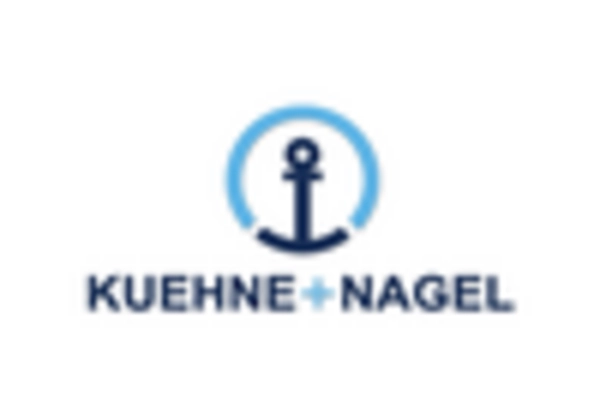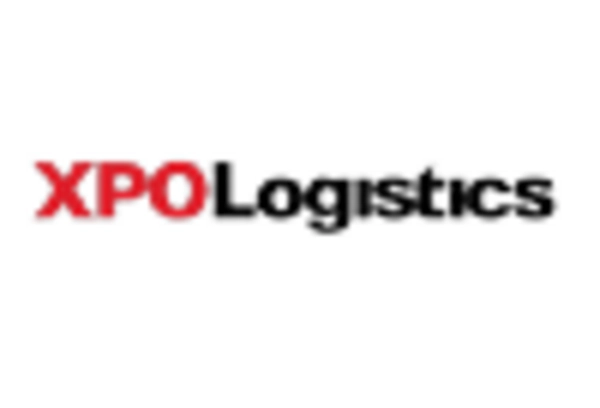Market Share
Chemical Logistics Market Share Analysis
The Chemical Logistics market, a critical component of the chemical industry, employs a variety of strategies to establish and enhance market share. One fundamental approach is differentiation, where companies distinguish themselves through specialized services tailored to the unique needs of the chemical sector. This may involve expertise in handling hazardous materials, compliance with stringent regulatory requirements, or offering specialized storage and transportation solutions. By catering to the distinct demands of the chemical industry, companies can attract clients seeking specific expertise, positioning themselves as trusted partners within this niche market.
Cost leadership is another pivotal strategy in the Chemical Logistics market. Companies that focus on optimizing operational efficiency, leveraging economies of scale, and implementing cost-effective transportation solutions can position themselves as leaders in providing budget-friendly logistics services. This approach is attractive to chemical manufacturers and distributors looking to streamline their supply chain without compromising on the safety and reliability of their logistics partners.
Strategic partnerships and collaborations are key elements of market share positioning within the Chemical Logistics sector. Companies often form alliances with chemical manufacturers, regulatory agencies, and transportation providers to create an integrated and comprehensive supply chain network. These collaborations enable companies to offer end-to-end solutions, navigate complex regulatory landscapes, and enhance the overall efficiency and reliability of their services, solidifying their market position.
Customer-centricity remains crucial for success in the Chemical Logistics market. Understanding and addressing the specific needs of chemical clients, such as compliance requirements, safety protocols, and the need for specialized handling, is essential for building lasting relationships. Companies that prioritize safety, transparency, and responsiveness to changing client demands are better positioned to foster customer loyalty, contributing to steady market share growth.
Technological innovation is increasingly influencing market share positioning in the Chemical Logistics industry. Companies that invest in advanced technologies, such as real-time tracking systems, RFID (Radio-Frequency Identification) for inventory management, and data analytics for predictive maintenance, can enhance visibility, traceability, and overall efficiency in chemical logistics operations. Embracing these technologies not only improves service offerings but also positions companies as leaders in adopting modern and efficient logistics solutions.
Environmental sustainability is gaining prominence as a market share positioning strategy in the Chemical Logistics market. With increasing awareness of environmental issues, companies that adopt eco-friendly practices, such as utilizing electric vehicles, optimizing transportation routes for fuel efficiency, and implementing waste reduction measures, can appeal to environmentally conscious clients. Sustainability initiatives contribute to a positive brand image and help companies align with evolving environmental standards and regulations.
Global expansion is a common strategy in the Chemical Logistics market, given the international nature of chemical supply chains. Companies may invest in expanding their presence in key chemical-producing regions, establishing strategic hubs, or forming partnerships with global logistics networks. Establishing a global footprint enables companies to cater to the diverse needs of clients across different markets, adapt to regional regulatory requirements, and strengthen their market position on a global scale.


















Leave a Comment